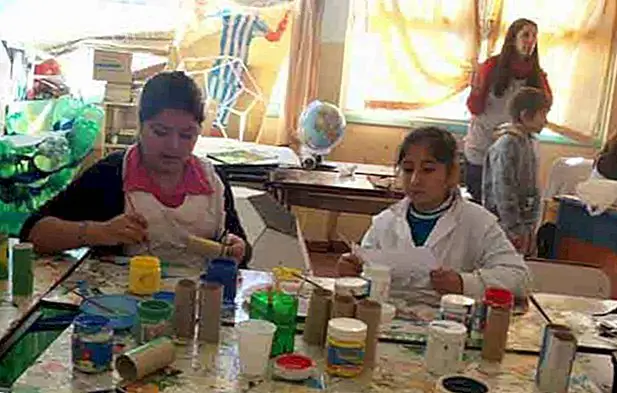Affective lack is a situation of lack of lack of care, protection, attention and attachment that a child suffers or has suffered from his mother or habitual caregiver during the first years of life.
This affective lack may be due to a multitude of circumstances such as abandonment, abuse to other family situations less traumatic but that leave the child unattended in the emotional and relational plane.
The need for affection for child development
Throughout the first months and years, the human baby needs caresses, hugs, kisses and affectionate words that stimulate their growth and brain maturation. Without this affective heat, without this maternal-filial attachment, neuronal development is not completed properly. We know that it is not enough to feed the baby so that it grows healthy, it is necessary to convey affection and affection, make it feel that it is loved so that it develops properly not only in the emotional plane, but also physical and mental.
In today's society in which we live, immersed in a frantic activity and with work schedules that are not adequate for family reconciliation, there are many children who lack affection, affection and the emotional relationships necessary for their proper development. It is not necessary for the child to be subjected to extreme causes such as abuse, neglect, abandonment, long hospitalizations, separations or traumatic divorces, to be in a situation of more or less serious affective deficiency. Poor quality care contributes significantly to the deterioration of the child's development.
Children who spend hours and hours in front of the TV or computer screen are not enjoying the affection or social or intellectual interactions that correspond to their age. This tendency to leave children with the virtual babysitter for long hours creates an impersonal parenting style, orienting children towards technology and abandoning the human factor.
6 symptoms that your child has effective deficienciesChildren who do not feel loved by their parents, with a cold, hostile, aggressive or neglectful environment may end up developing more or less serious psychological disorders. The consequences of the emotional deficiencies suffered during the first years of life are often irremediable.
Some of these symptoms are:1. Problems with impulse control, with sudden changes in behavior and aggressive responses.
2. Generalized distrust.
3. Poor development of language and social skills.
4. Attention deficit.
5. Anxiety disorders.
6. Difficulties to express feelings and problems to modulate them.
All these symptoms can reach adulthood by encountering egocentric people, with limited social and emotionally dependent abilities.

Sara Tarr s Corominas
Child psychologist
Child counselor
Origin: http://www.guiainfantil.com/articulos/educacion/derechos-del-nino/sintomas-de-carencia-afectiva-en-los-ninos/
Symptoms of affective deficiency in children






